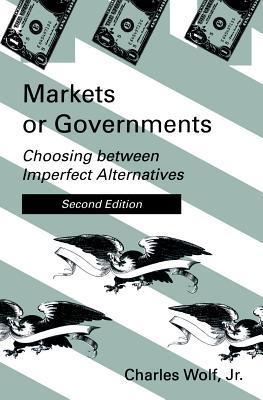
1990
First Published
3.60
Average Rating
256
Number of Pages
Provides a formal theory of nonmarket failure, analyzing such problems as redundant costs, monopoly, frequency of unanticipated externalities, and bureaucracy in such nonmarket institutions as foundations, universities, and government. A theory of market failures is well established in economics, but the same has not been true for the study of nonmarket failures. Markets or Governments remedies this situation by providing a formal theory of nonmarket failure, analyzing such problems as redundant costs, monopoly, frequency of unanticipated externalities, and bureaucracy in such nonmarket institutions as foundations, universities, and government. This new edition updates the data and results contained in the first edition and includes references and applications of the theory to the ongoing process of system transformation in Russia, Ukraine, and Eastern Europe. The discussion of earlier literature that is relevant to the theory of nonmarket failure has been expanded.
Avg Rating
3.60
Number of Ratings
15
5 STARS
40%
4 STARS
13%
3 STARS
27%
2 STARS
7%
1 STARS
13%
goodreads
Author
Charles Wolf Jr.
Author · 2 books
Charles Wolf Jr. was an American economist, diplomat and educator. During the late 1940s and early 1950s, after receiving his PhD in economics from Harvard University (where he had previously earned his bachelor's degree, also in economics), he served with the U.S. State Department as a Foreign Service Officer. He then taught at Cornell University, and also at the University of California, Berkeley. Professor Wolf joined the RAND Corporation in 1955, where he led the Economics Department from 1967 to 1981; he was a senior economic advisor at RAND for the rest of his career. In addition, he was a senior research fellow at the Hoover Institution at Stanford University and was a member of the American Economic Association, the Econometric Society, the Council on Foreign Relations, and also the International Institute for Strategic Studies in London. He was the founding dean of the Frederick S. Pardee RAND Graduate School, an appointment he held from 1970 to 1997; he taught at that school until his death in 2016. Perhaps his greatest claim to fame was his prediction, in the 1980s, of the economic collapse of the Soviet Union.